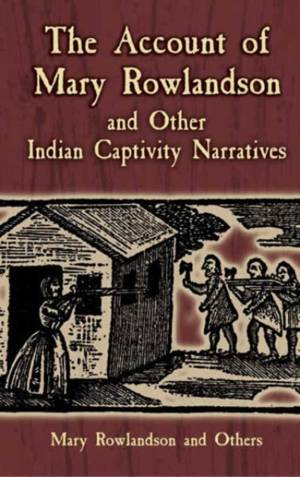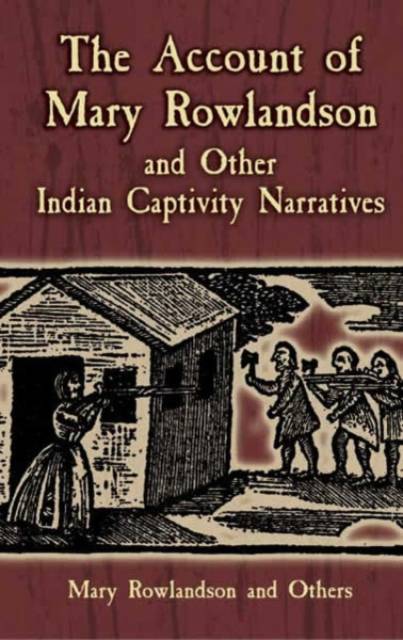
- Afhalen na 1 uur in een winkel met voorraad
- Gratis thuislevering in België vanaf € 30
- Ruim aanbod met 7 miljoen producten
- Afhalen na 1 uur in een winkel met voorraad
- Gratis thuislevering in België vanaf € 30
- Ruim aanbod met 7 miljoen producten
Zoeken
The Account of Mary Rowlandson and Other Indian Captivity Narratives
Mary Rowlandson
€ 9,95
+ 19 punten
Omschrijving
The wife of a minister in a small frontier town west of Boston, Mary Rowlandson was forced to leave her house in the late winter of 1676 after marauding Indians set the building on fire. "I had often before this said," she later wrote, "that if the Indians should come, I should chuse rather to be killed by them than taken alive but when it came to the tryal my mind changed; their glittering weapons so daunted my spirit, that I chose rather to go along . . . than to end my days."
Thus began Mary Rowlandson's account of her arduous journey as a servant to her captors, the Narragansett Indians. The most celebrated such document in American history, her record of the three months she spent in captivity tells of hardship and suffering, but also includes invaluable observations on Native American life and customs. The text is notable, as well, for conveying an understanding of her captors as individuals who not only suffered and faced difficult decisions but were also, at times, sympathetic humans (one of her abductors gave her a Bible taken during an earlier raid).
An immediate bestseller when first published in 1682, Rowlandson's narrative is widely regarded today as a classic--the first in a series of "captivity narratives" in which women, seized by Indians, survived against overwhelming odds. Of special interest to historians and students of Native American culture, Rowlandson's astounding account -- accompanied by three other famous narratives of captivity -- will also thrill the most avid of adventure enthusiasts.
Thus began Mary Rowlandson's account of her arduous journey as a servant to her captors, the Narragansett Indians. The most celebrated such document in American history, her record of the three months she spent in captivity tells of hardship and suffering, but also includes invaluable observations on Native American life and customs. The text is notable, as well, for conveying an understanding of her captors as individuals who not only suffered and faced difficult decisions but were also, at times, sympathetic humans (one of her abductors gave her a Bible taken during an earlier raid).
An immediate bestseller when first published in 1682, Rowlandson's narrative is widely regarded today as a classic--the first in a series of "captivity narratives" in which women, seized by Indians, survived against overwhelming odds. Of special interest to historians and students of Native American culture, Rowlandson's astounding account -- accompanied by three other famous narratives of captivity -- will also thrill the most avid of adventure enthusiasts.
Specificaties
Betrokkenen
- Auteur(s):
- Uitgeverij:
Inhoud
- Aantal bladzijden:
- 112
- Taal:
- Engels
- Reeks:
Eigenschappen
- Productcode (EAN):
- 9780486445205
- Verschijningsdatum:
- 13/09/2005
- Uitvoering:
- Paperback
- Formaat:
- Trade paperback (VS)
- Afmetingen:
- 133 mm x 222 mm
- Gewicht:
- 122 g

Alleen bij Standaard Boekhandel
+ 19 punten op je klantenkaart van Standaard Boekhandel
Beoordelingen
We publiceren alleen reviews die voldoen aan de voorwaarden voor reviews. Bekijk onze voorwaarden voor reviews.











